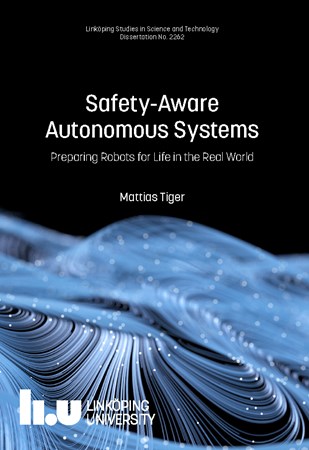From Mattias Tiger's PhD thesis:
Real‐world autonomous systems are expected to be increasingly deployed and operating in real‐world environments over the coming decades. Autonomous systems such as AI‐enabled robotic systems and intelligent transportation systems, will alleviate mundane human work, provide new services, and facilitate a smarter and more flexible infrastructure. The real‐world environments affected include workplaces, public spaces, and homes.
To ensure safe operations, in for example the vicinity of people, it is paramount that the autonomous systems are explainable, behave predictable, and can handle that the real world is ever changing and only partially observable.
To deal with a dynamic and changing environment, consistently and safely, it is necessary to have sound uncertainty management. Explicit uncertainty quantification is fundamental to providing probabilistic safety guarantees that can also be monitored during runtime to ensure safety in new situations. It is further necessary for well‐grounded prediction and classification uncertainty, for achieving task effectiveness with high robustness and for dealing with unknown unknowns, such as world model divergence, using anomaly detection.
This dissertation focuses on the notion of motion in terms of trajectories, from recognizing – to anticipating – to generating – to monitoring that it fulfills expectations such as predictability or other safety constraints during runtime. Efficiency, effectiveness, and safety are competing qualities, and in safety critical applications the required degree of safety makes it very challenging to reach useful levels of efficiency and effectiveness. To this end, a holistic perspective on agent motion in complex and dynamic environments is investigated. This work leverage synergies in well‐founded formalized interactions and integration between learning, reasoning, and interaction, and demonstrate jointly efficient, effective, and safe capabilities for autonomous systems in safety‐critical situations.
This work was partially supported by the Wallenberg AI, Autonomous Systems and Software Program (WASP) funded by the Knut and Alice Wallenberg Foundation, and by grants from the National Graduate School in Computer Science (CUGS), the Swedish Foundation for Strategic Research (SSF) project CUAS, the Swedish Research Council (VR) Linnaeus Center CADICS, Sweden, the Center for Industrial Information Technology CENIIT, the Excellence Center at Linkping‐Lund for Information Technology (ELLIIT), the TAILOR Project funded by EU Horizon 2020 research and innovation programme GA No 952215, and Knut and Alice Wallenberg Foundation (KAW 2019.0350).

